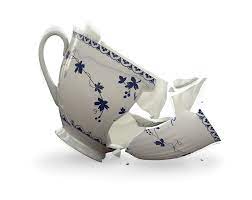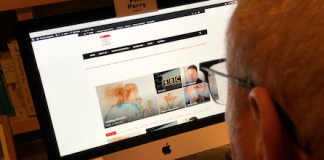- X marks the spot again - 17th February 2026
- Wordy again part three - 16th February 2026
- ‘Lies, damned lies etc…’ - 13th February 2026

After a 23 year career with The BBC, and 38 years in journalism, (when he was trained to use clear and simple language, avoiding jargon), here our Editor Phil Parry, looks at how the unprovoked invasion of Ukraine by Russia, has focused eyes on the role of its huge neighbour, China, where it’s been reported that media freedom is declining at ‘breakneck speed’.
Earlier he has described how he was assisted in breaking into the South Wales Echo office car when he was a cub reporter, recalled his early career as a journalist, the importance of experience in the job, and made clear that the ‘calls’ to emergency services as well as court cases are central to any media operation.

He has also explored how poorly paid most journalism is when trainee reporters had to live in squalid flats, the vital role of expenses, and about one of his most important stories on the now-scrapped 53 year-old BBC Wales TV Current Affairs series, Week In Week Out (WIWO), which won an award even after it was axed, long after his career really took off.
Phil has explained too how crucial it is actually to speak to people, the virtue of speed as well as accuracy, why knowledge of ‘history’ is vital, how certain material was removed from TV Current Affairs programmes when secret cameras had to be used, and some of those he has interviewed.

He has disclosed as well why investigative journalism is needed now more than ever although others have different opinions, how the current coronavirus (Covid-19) lockdownis playing havoc with media schedules, and the importance of the hugely lower average age of some political leaders compared with when he started reporting.
The war in Ukraine has emphasised the importance of having a FREE media to provide FACTS.
The media in Russia is, largely, state-controlled, but this abysmal situation is equally bad in the country’s giant neighbour China, which has (we have been told by them) a “rock-solid friendship” with the aggressor, and that theirs is a friendship which “knows no limits”.
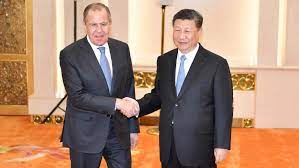
Backing comments like that, Sergei Lavrov, the Russian Foreign Minister, has emphasised that Russia’s relationship with China will actually be improved by the war in Ukraine.
He told the Russian news agency Interfax: “This co-operation will get stronger, because at a time when the West is blatantly undermining all the foundations on which the international system is based, of course we – as two great powers – need to think how to carry on in this world”.
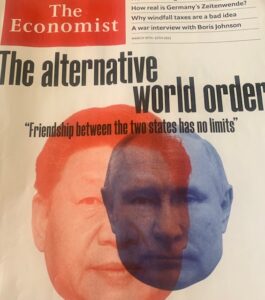 This support from Russia, comes at a time when observers note how censorship in China has been implemented and mandated by the country’s ruling party, the Chinese Communist Party (CCP).
This support from Russia, comes at a time when observers note how censorship in China has been implemented and mandated by the country’s ruling party, the Chinese Communist Party (CCP).
Government officials censor content for mainly political reasons, such as in curtailing political opposition, as well as to block information about events which are unfavourable to the CCP, like, for example, the 1989 Tiananmen Square protests and massacre, but also in order to maintain control over the populace.
Since Xi Jinping became General Secretary of the CCP (de facto leader, and seeking a THIRD term against norms) in 2012, censorship has been significantly stepped up.

The government now has control over all media capable of reaching a wide audience, including, television, print, radio, film, theatre, text messaging, instant messaging, video games, literature, and the internet.
Its grip is almost total, and there is only a semblance of defence for it.
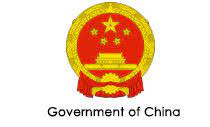
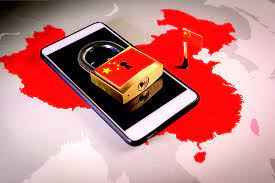
Chinese government officials assert that they have the right to control the internet’s content within their territory, and that their rules do not infringe on citizens’ right to free speech. However, Reporters Without Borders ranks China’s freedom of the media situation as “very serious”, the worst ranking on their five-point scale.
Even 10 years ago China’s position was appalling.
 The ‘OpenNet Initiative’ classified internet censorship in China as “pervasive” in political and conflict/security areas, as well as “substantial” in those of social and internet tools, the two most extensive classifications of the five they use. Freedom House, a US-backed NGO, ranks the Chinese press as “not free”, the worst possible ranking, declaring that “state control over the news media in China is achieved through a complex combination of party monitoring of news content, legal restrictions on journalists, and financial incentives for self-censorship”.
The ‘OpenNet Initiative’ classified internet censorship in China as “pervasive” in political and conflict/security areas, as well as “substantial” in those of social and internet tools, the two most extensive classifications of the five they use. Freedom House, a US-backed NGO, ranks the Chinese press as “not free”, the worst possible ranking, declaring that “state control over the news media in China is achieved through a complex combination of party monitoring of news content, legal restrictions on journalists, and financial incentives for self-censorship”.
This terrible state of affairs has had major personal ramifications.

For some time I was used as a political pundit on World Today (CGTN Radio – a Chinese station), but I have now informed them: ‘As you are state-run (they call it state-‘affiliated’), and, as I have written about on my website, I believe in media freedom, I no longer wish to contribute to ANY of your programmes https://the-eye.wales/nosey-m

My decision came even before a report by the Foreign Correspondents Club (FCC) of China, which highlighted the truth about what is happening in the country.
The report in January, said that journalists there faced physical assault, hacking, online trolling and visa denials, as media freedom in China declined at a “breakneck speed”.
Local journalists in mainland China and Hong Kong are also being targeted, while the authorities have labelled the FCC an “illegal organisation”. This term appears to be being bandied around willy-nilly, as Mr Jinping, exerts ever greater authority in China.
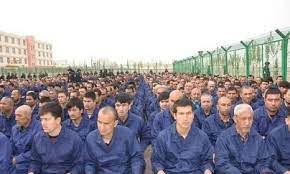
Journalists’ attempts to report facts, for instance about the persecution of the mostly-Muslim Uyghur people in the north-western region of Xinjiang, are being severely hampered. Human rights groups believe China has detained more than one million Uyghurs against their will over the past few years, in a large network of what the state calls “re-education camps”, and that it has sentenced hundreds of thousands of them to prison terms.
There is also evidence that Uyghurs are being used as slave labour, and of women being forcibly sterilised, as well as some former camp detainees alleging that they have been tortured and sexually abused.
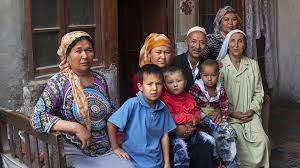
Two recent books have laid bare in horrifying detail what is happening inside China. ‘In The Camps’ by Darren Byler, describes how facial recognition and high-technologuy surveillance, make resistance impossible.
The accounts from Gulbahar Haitiwaji in ‘How I Survived a Chinese ‘Reeducation’ Camp’ are just as disturbing. Internees are forced to stand motionless for hours, sit on plastic stools, day in day out, until their intestines prolapse, and are told to sing patriotic songs, giving thanks to Mr Jinping. “We were eternal victims, bowed under the weight of threats”, says Ms Haitiwaji.
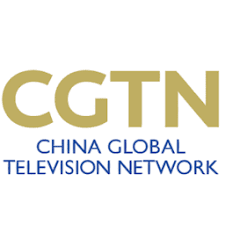
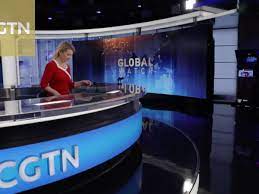
CGTN, however, have a slightly different view of events surrounding the Uyghurs.
Their journalists have ‘reported’ that: “Some anti-China forces in the West, including the United States, have concocted and disseminated plenty of false information about China’s Xinjiang Uygur Autonomous Region.
“People in the region continue to embrace peace and prosperity and Xinjiang society continues to develop steadily. These facts are the most powerful tool to debunk lies on Xinjiang”.
Yet last year Ofcom said the company which possesses the UK licence for CGTN is not actually in charge, which is against its rules. It seemed that Star China Media Limited (SCML), which owns the licence for CGTN, “did not have editorial responsibility”. This judgement was made after accusations that CGTN repeatedly breached impartiality rules and aired forced confessions. Ofcom had also received a complaint stating that CGTN should not be allowed to broadcast at all because it was effectively controlled by the Communist party.
 The director of human rights group Safeguard Defenders, Peter Dahlin, said: “The best way forward is to revoke their (CGTN/SCML) licence to teach them that this is unacceptable”.
The director of human rights group Safeguard Defenders, Peter Dahlin, said: “The best way forward is to revoke their (CGTN/SCML) licence to teach them that this is unacceptable”.
This has come after many years, during which worrying news has been revealed about what is happening inside China.
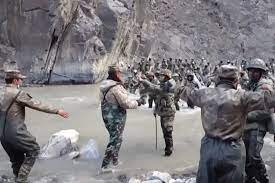
10 years ago the FCC was forced to issue a warning to its members after three employees of European media companies were attacked. The reporters for the companies were covering land rights protests in the village of Panhe, in the eastern Zhejiang province, and during one incident, a French reporter had his car rammed, while a group of men beat up his Chinese assistant. In another, a Dutch correspondent was attacked by men who appeared to be plain-clothes police.
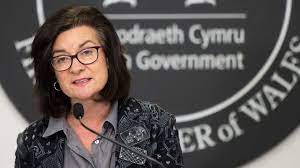
But, of course, these assaults weren’t reported in China’s state-controlled media, and the current awful events in Ukraine, have emphasised the importance of allowing a free media, to do just that!
Tomorrow – how double-standards often seemed to exist for the people exposed by Phil, and news comes now that a senior Welsh politician has been banned from driving for speeding, when she had earlier said road safety was paramount, and endorsed a lower speed limit for other drivers.
 The memories of his decades long award-winning career in journalism (when media freedom was all-important) as he was gripped by the rare neurological condition, Hereditary Spastic Paraplegia (HSP), have been released in a major book ‘A GOOD STORY’. Order it now!
The memories of his decades long award-winning career in journalism (when media freedom was all-important) as he was gripped by the rare neurological condition, Hereditary Spastic Paraplegia (HSP), have been released in a major book ‘A GOOD STORY’. Order it now!
Publication of another book, however, was refused, because it was to have included names.








